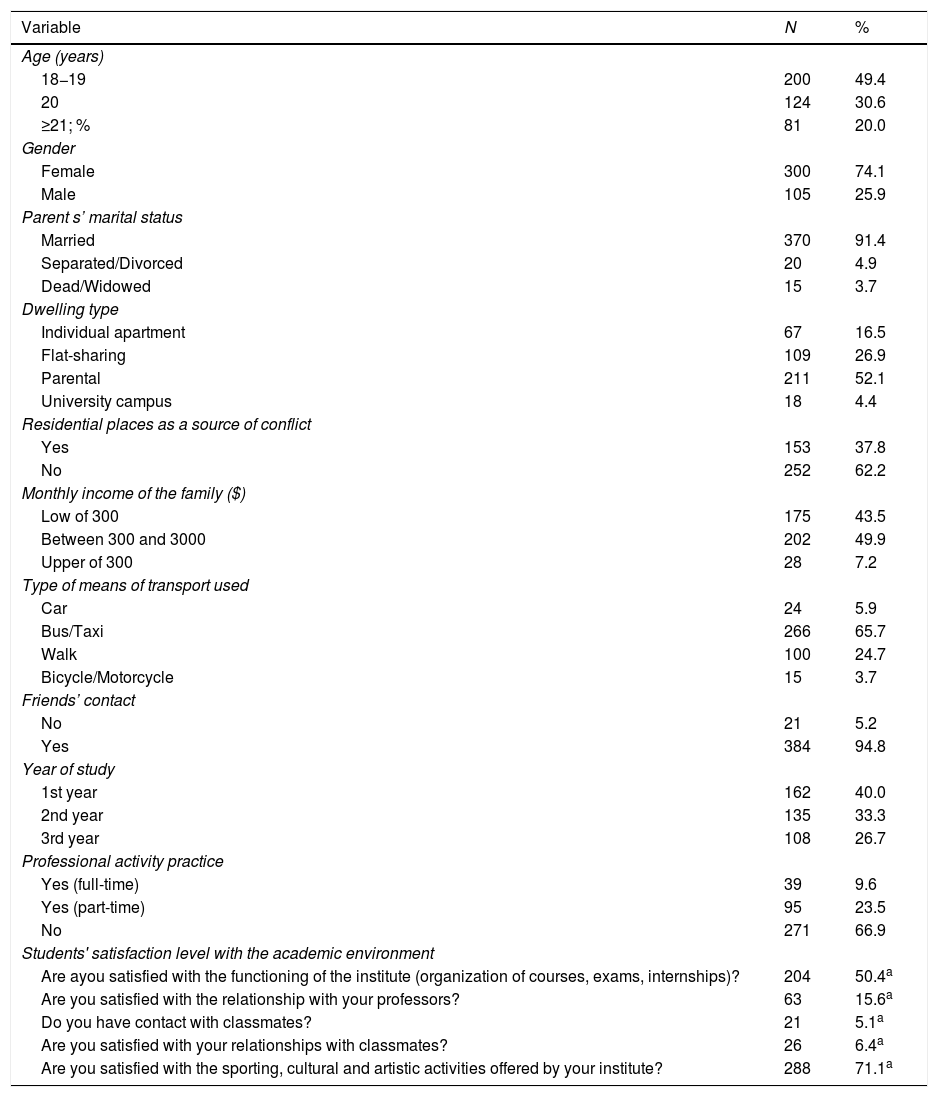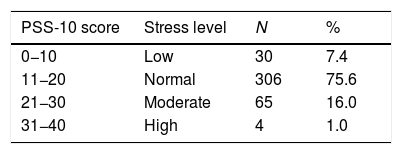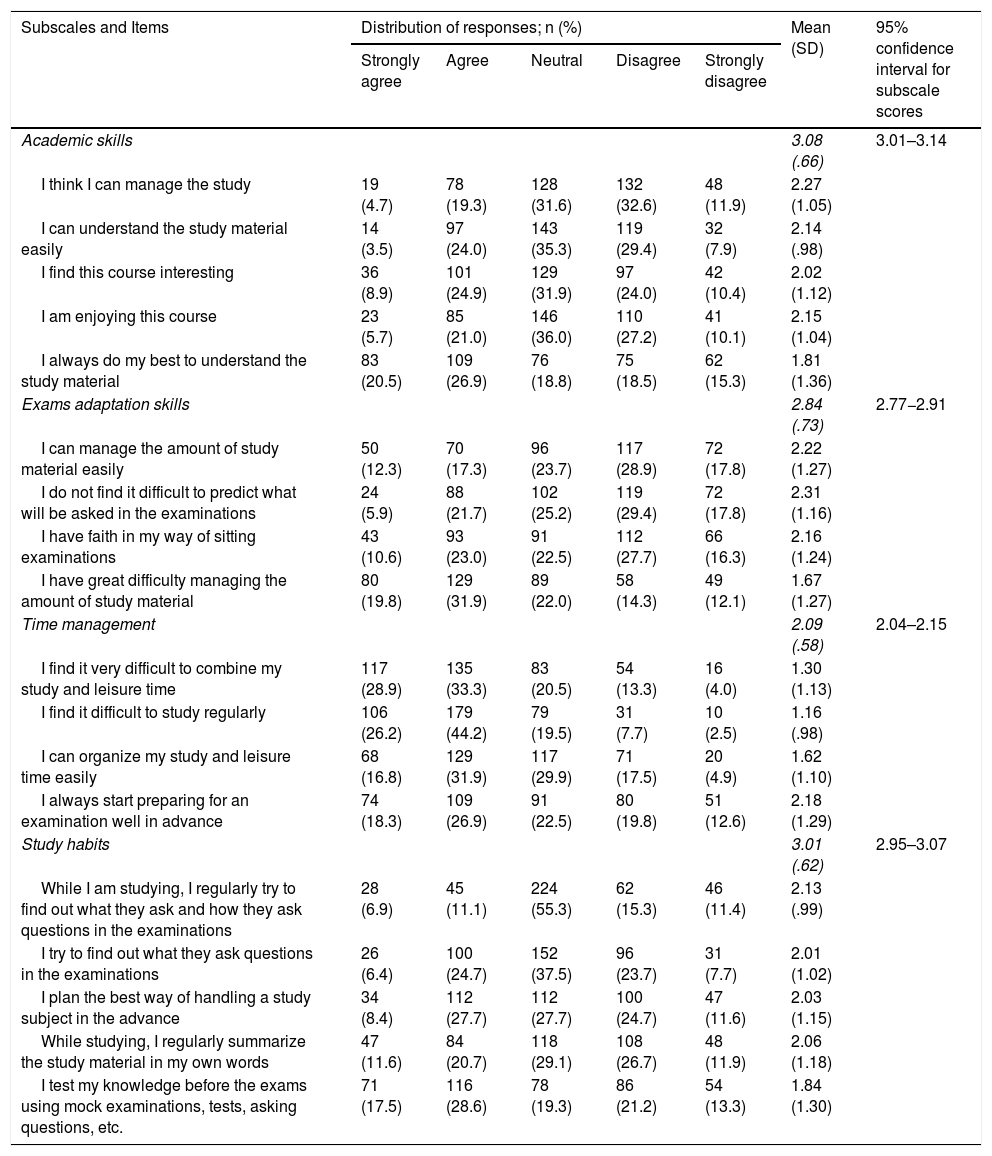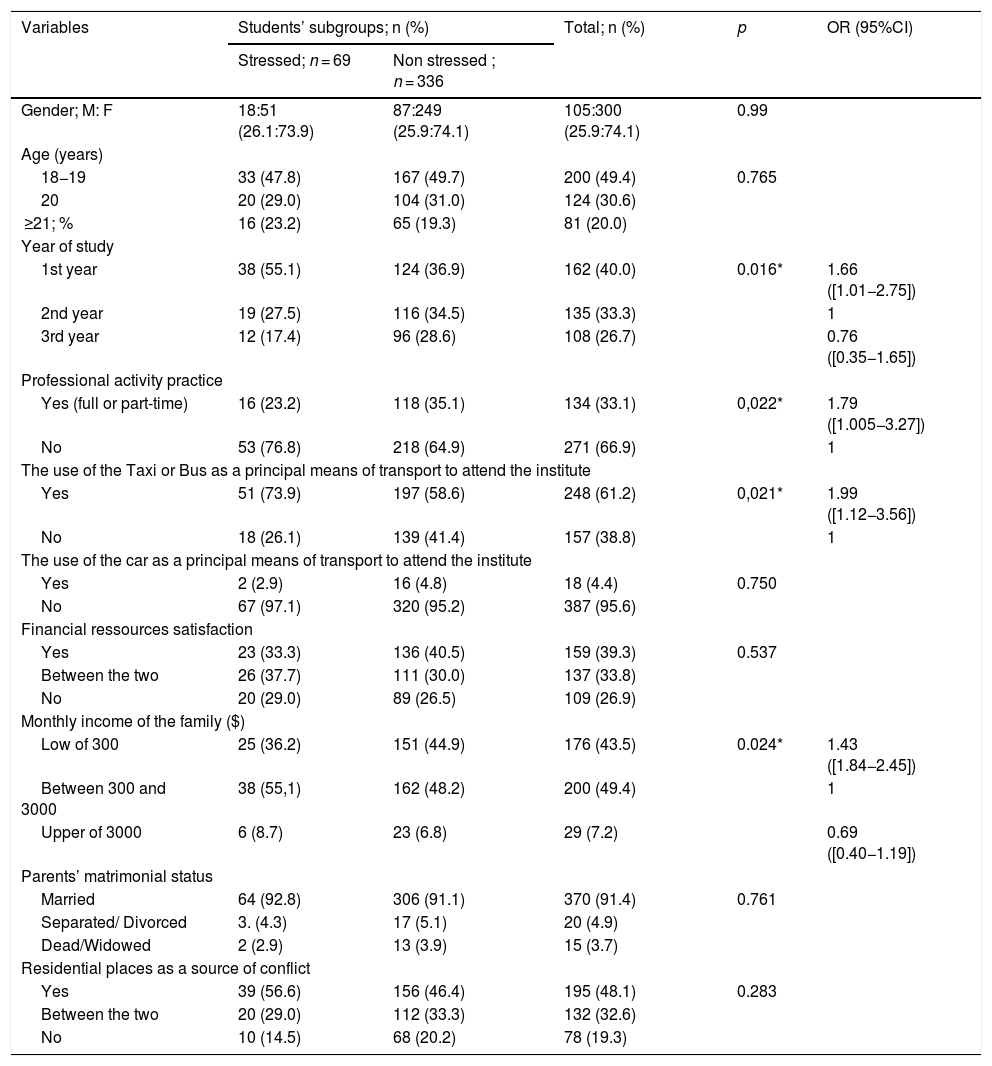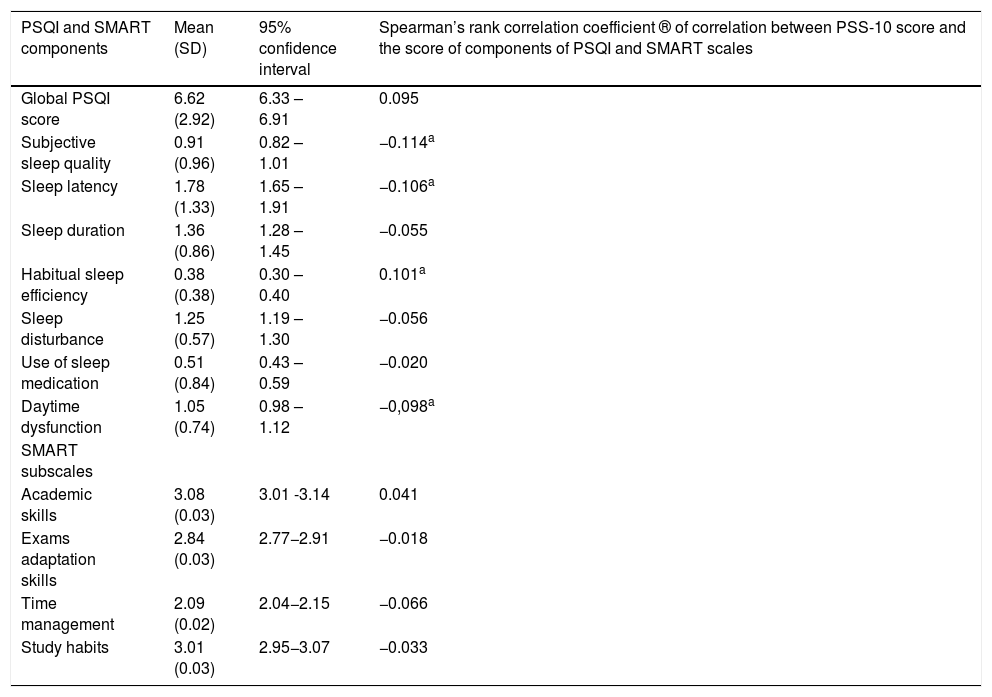This study was performed to evaluate the prevalence and related factors of perceived stress among nursing students at Fez High Institute of Nursing Professions and Health Technics in Morocco.
MethodA cross-sectional study was used to determine the perceived stress levels and stress-related factors among nursing students enrolled at Fez High Institute of Nursing Professions and Health Technics in Morocco. The Perceived Stress Scale 10, Pittsburgh Sleep Quality Index scale, and Academic Competence, Test Competence, Time Management, and Strategic Studying scale were used to collect data from 405 students enrolled in nursing courses. Univariate and bivariate analyses were conducted using SPSS version 20.
ResultsOf the 437 nursing students, 405 (105 men and 300 women) completed the survey. A low prevalence of perceived stress (17%; N = 69) was found, with a mean stress score of 17.174,15. The stress level of the students was significantly associated with the year of study of the students, the practice of professional extracurricular activities, the monthly income of the family, and the use of public transportation. In addition, the stress level was associated with the subjective quality of the sleep of the students, sleep latency, diurnal dysfunction, and usual sleep efficiency. In addition, a positive correlation was observed between "time management" scores and "test adaptation skills" scores. However, no significant association was observed between stress scores with the age and gender of the students.
ConclusionConsidering these results, national universities should employ preventive interventions by disclosing and controlling the associated factors of stress. Thus, the results of this investigation could be effective to determine stress-related factors to provide adequate intervention to this subset of the population.
Este estudio se realizó para evaluar la prevalencia y los factores relacionados con el estrés percibido entre los estudiantes de enfermería del Instituto Superior de Profesiones de Enfermería y Técnicas de la Salud de Fez en Marruecos.
MétodoSe utilizó un estudio. La Escala de Estrés Percibido 10, la escala del Índice de Calidad del Sueño de Pittsburgh y la escala de Competencia Académica, Competencia en Pruebas, Gestión del Tiempo y Estudio Estratégico se utilizaron para recopilar datos de estudiantes matriculados en cursos de enfermería. Los análisis univariados y bivariados se realizaron con SPSS versión 20.
ResultadosDe los 437 estudiantes de enfermería, 405 (105 hombres y 300 mujeres) completaron la encuesta. Se encontró una baja prevalencia de estrés percibido (17% ; N = 69), con una puntuación media de estrés de 17,17 (4,15). El nivel de estrés de los estudiantes se asoció significativamente con el año de estudio de los estudiantes, la práctica de actividades extracurriculares profesionales, el ingreso mensual de la familia y el uso del transporte público. Además, el nivel de estrés se asoció con la calidad subjetiva del sueño de los estudiantes, la latencia del sueño, la disfunción diurna y la eficiencia habitual del sueño. Además, se observó una correlación positiva entre las puntuaciones de "gestión del tiempo" y las puntuaciones de "habilidades de adaptación a la prueba". Sin embargo, no se observó asociación significativa entre las puntuaciones de estrés con la edad y el género de los estudiantes.
ConclusiónTeniendo en cuenta estos resultados, las universidades nacionales deberían emplear intervenciones preventivas mediante la divulgación y el control de los factores de estrés asociados. Por lo tanto, los resultados de esta investigación podrían ser efectivos para determinar los factores relacionados con el estrés para brindar una intervención adecuada a este subconjunto de la población.






